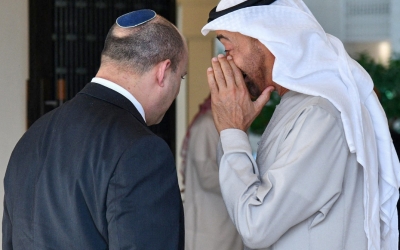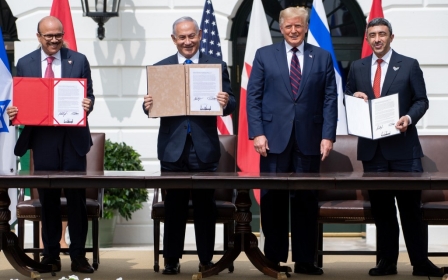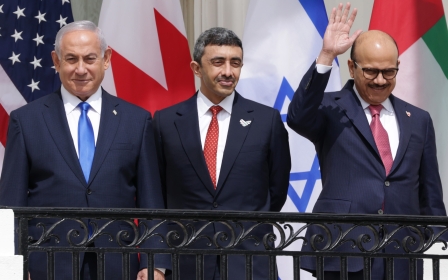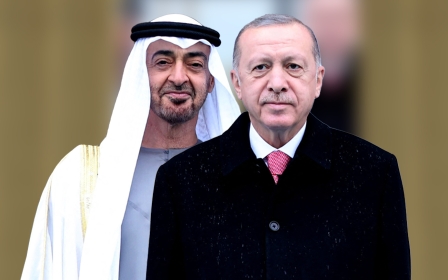Naqab Summit: Arab autocrats hand over regional leadership to Israel
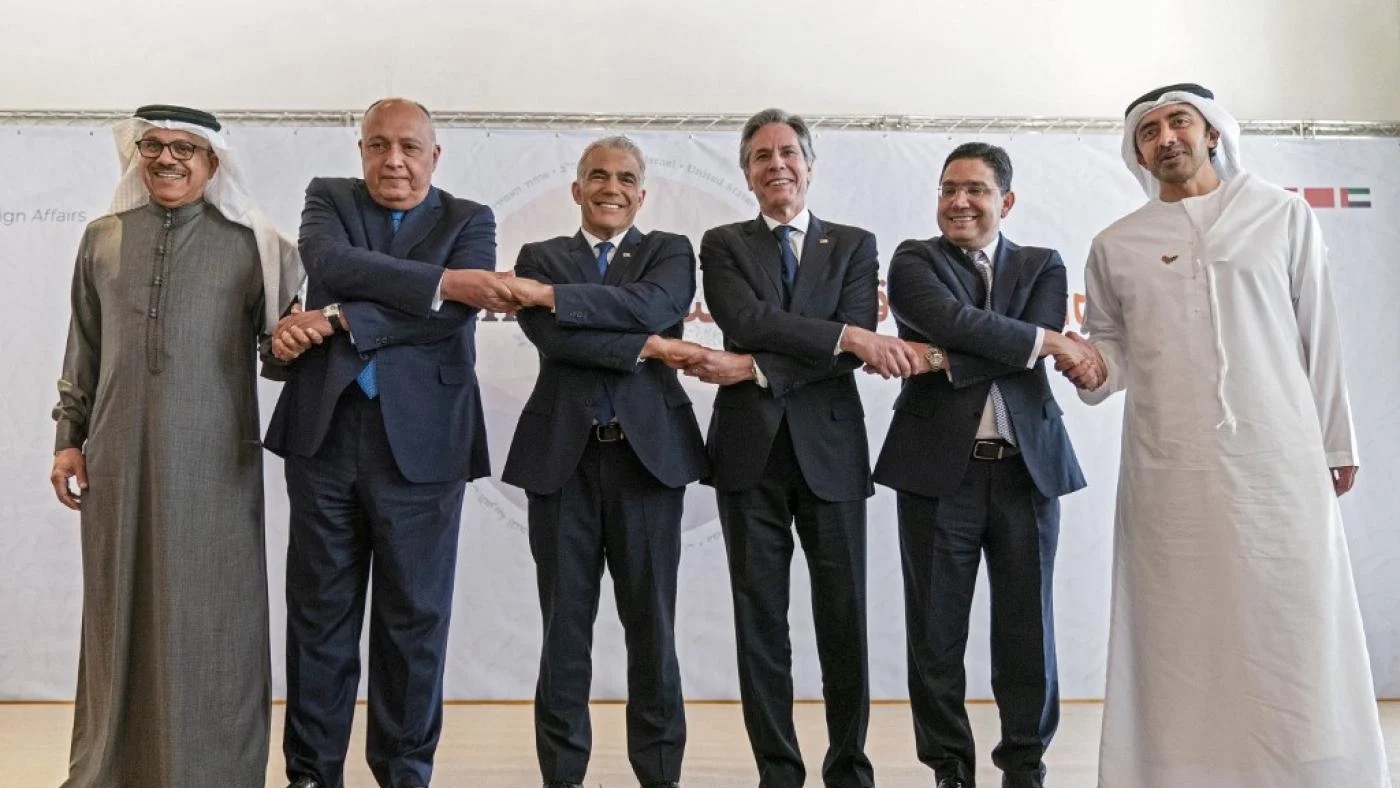
Even in his wildest dreams, Israel’s founding prime minister, David Ben-Gurion, might never have imagined that Arab foreign ministers from Egypt, Bahrain, Morocco and the UAE would gather near his tomb for a summit on expanding regional cooperation.
The choice of venue was no accident. As Lebanese writer Elias Khoury noted: “Israel insists on using such symbolism, while destroying any symbols of the Palestinians … This is a summit of humiliation, where Israel brings Arab rulers to conduct pilgrimage before the perpetrator of the Palestinian Nakba.”
As more Arab autocrats succumb to Israel's undeclared leadership, a deep sense of frustration, anger and betrayal is growing across the region
By all measures, the Naqab Summit was historic. It could mark a turning point for Israel’s regional rise, as Tel Aviv becomes a leading force in the Arab region - even if Israel has played down such ambitions.
While the gathering came in the context of responding to the Iran nuclear threat and followed recent Houthi attacks on Saudi oil facilities, Israeli Foreign Minister Yair Lapid announced that the summit would now become an annual event.
Lapid said it laid the foundations for a “new regional architecture” whose leading concern is to deter Iran and its proxies. Symbolically, the broader design could be read in a group picture that was widely circulated, in which the Israeli and American foreign ministers stood in the centre flanked by Arab ministers, all crossing arms and shaking hands with each other.
New MEE newsletter: Jerusalem Dispatch
Sign up to get the latest insights and analysis on Israel-Palestine, alongside Turkey Unpacked and other MEE newsletters
The message was bold and clear: Israel is the capstone of the emerging regional security system.
Push for normalisation
Israel’s quiet bid for regional leadership is deeply linked with its normalisation drive via the Abraham Accords, encompassing the UAE, Bahrain, Sudan and Morocco. Israel is the gateway to the US, and in each of these cases, regional governments perceived that they could achieve great strategic gains only by normalising relations with Israel.
The UAE, and Bahrain by extension, wanted to ally with the state that acquires the most advanced technology and intelligence in the region, and that can stand in the face of Iran. The UAE wanted to buy American F-35 fighter jets where Israel’s tacit approval was a prerequisite.
In Sudan, the shaky post-Bashir government was desperate to have the country’s name removed from the US list of terrorism-sponsoring countries. The shortcut was to knock at Israel’s door, with the echo heard in Washington.
Morocco, for its part, wanted to end the impasse over the intractable dispute with Algeria regarding Western Sahara. The Israeli door opened, trading normalisation for a drastic shift in the US position, as Washington recognised Moroccan sovereignty over the area.
Next in line, Saudi Arabia now stands at the Israeli door, awaiting the right moment to enter and ask for help and protection. In a recent interview with the Atlantic, Saudi Crown Prince Mohammed bin Salman described Israel as a “potential ally” rather than an “enemy”. Saudi normalisation with Israel is thus just a question of when.
Meanwhile, formal and informal channels between both parties intensify by the day - a well-acknowledged open secret. The Saudis were perhaps the ghost attendee at the Naqab Summit. Just hours after the meeting, the US secretary of state called his Saudi counterpart to brief him on developments.
Prevailing indifference
Israel has indeed amassed massive political capital and regional leadership, exploiting the “Iran threat” and the Abraham Accords. In line with its interests, Palestinians were visibly absent from the summit.
Also noticeably absent were the Arab peoples themselves: Emiratis, Bahrainis, Sudanese and Moroccans. None of these meetings, nor the Abraham Accords cover-up, were approved by the people’s will through a free and fair democratic process.
And as more Arab autocrats succumb to Israel’s undeclared leadership, a deep sense of frustration, anger and betrayal is growing across the region. Such frustration is even deeper among the Palestinians as reflected in the most recent desperate attacks conducted by various individuals.
On the surface, indifference prevails, similar to the dominant regional attitudes in the decade before the 2011 Arab Spring. The simmering below the surface went largely unnoticed.
The current state of affairs, in which Israel is taking on a leadership role in Arab countries, injects a significant dose of further humiliation into an already wounded collective Arab psyche.
Fond words spoken by smiling foreign ministers aside, the reality is that Israel has made a bold stride towards leading the Arab region, whether or not this objective is openly stated. What this will mean in the near future, and what consequences will follow among Arab publics, remains an open question.
The views expressed in this article belong to the author and do not necessarily reflect the editorial policy of Middle East Eye.
Middle East Eye delivers independent and unrivalled coverage and analysis of the Middle East, North Africa and beyond. To learn more about republishing this content and the associated fees, please fill out this form. More about MEE can be found here.



